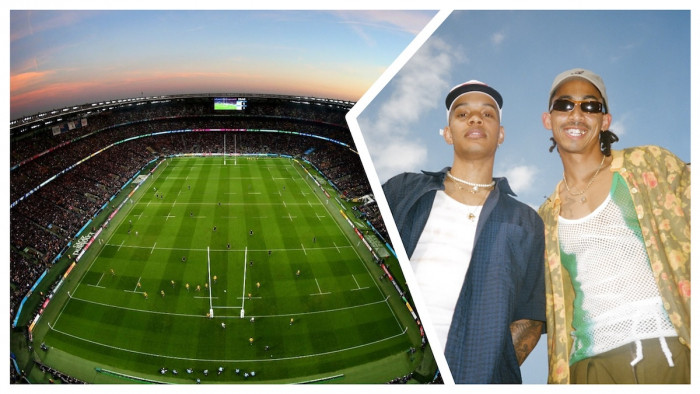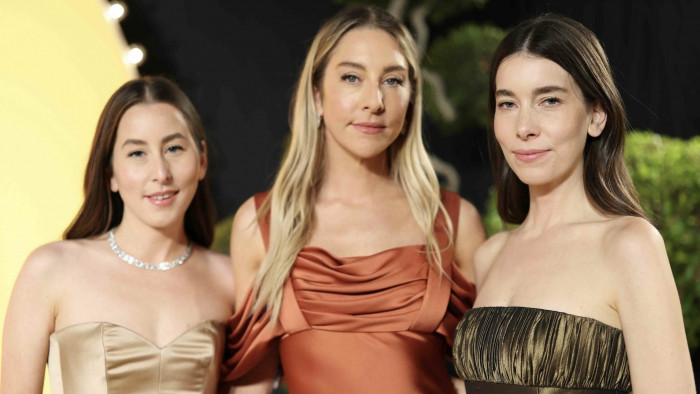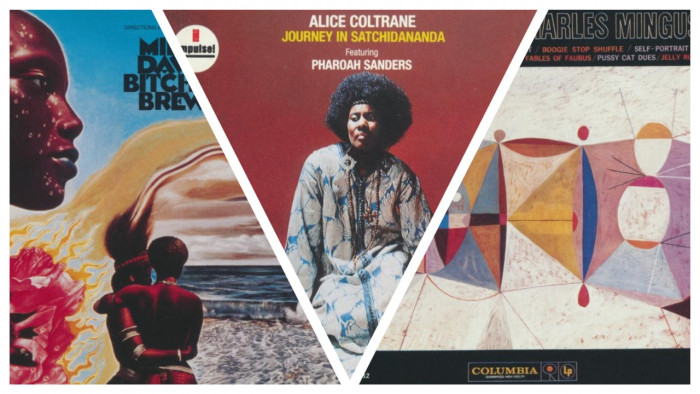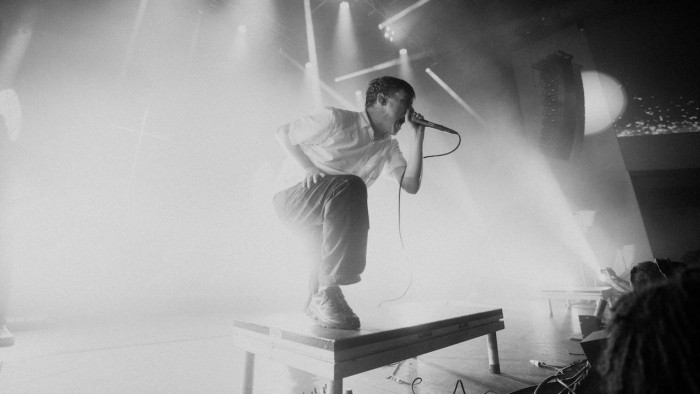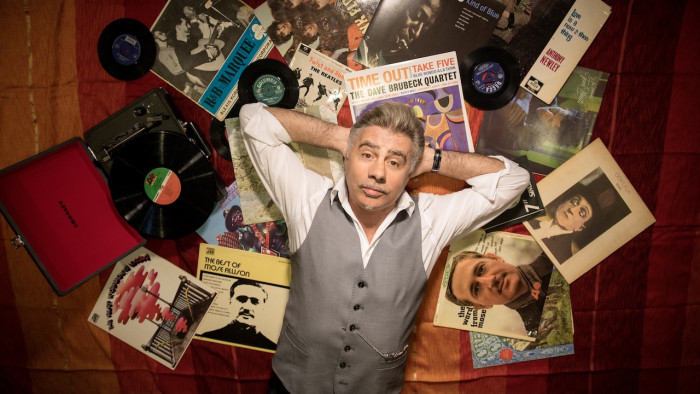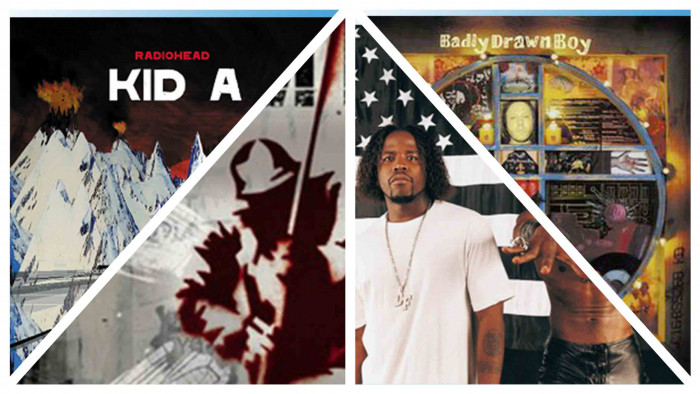Mick Jones: How I wrote 'I Want To Know What Love Is'
The Foreigner frontman talks us through his hit power ballad


Ultimate Power is a UK club night that plays nothing but power ballads. Co-founder Dave Fawbert spoke to Foreigner guitarist and songwriter Mick Jones to discover the secrets behind his songwriting
Can you just talk me through how you wrote I Want to Know What Love Is?
Well, a song like that really writes itself in a way. It’s an emotion, really, that you’re trying to capture and then suddenly the line pops into your head - the title of the song - and then you’ve got to sort of put everything together. Maybe you’ve got another section or something too that you’ve been saving to add to something, or it could just be set off by meeting somebody, or seeing somebody - there’s so many different ways that, especially a ballad, can be written. I’m a bit soppy that way, I’m a bit of a romantic so I kind of get drawn into my past sometimes, thinking about things that have happened in my life, a woman I was with and romances and all that kind of stuff and that particular night I was in London actually, I wrote it in London and I had a little flat here about ten years ago and my girlfriend, soon to be my wife, was asleep and this must have been about 2 or 3 in the morning and when I hit on the idea it sounded like magic to me, even though I only had the first three chords of the song, it was like: “Wow”, this could be incredible. And I had the title and the first three chords and that’s kind of what I played her at 3 in the morning.
So I woke her up and said, “You gotta hear there this! You gotta hear this!” It was, as I say, very late or very early depending on which way you look at that, and I told her the title and she looked up at me, blurry-eyed and said, “What do you mean you want to know what love is? Don’t you know now what love is?!” and I was like, “Yeah, of course!” She was tired so.. that was a big one I had to explain! It really was a song [that] started out as, really, an emotional look at things that had happened in the few years running up to that - there’d been a lot of emotional turmoil in my life at that point. And when a song or an idea or even a title or anything comes in like that, as I said earlier, it takes over. I feel that I’m like just the conveyor of the song - it may have existed in some other dimension or life, without getting too cosmic - but it really has this, you don’t really have to think about writing it, it sort of writes itself.
So when you finished writing it, how quickly did you get into the studio to produce the final version?
Let me think - I was having a meal one day with some friends at the beach and I was telling them about the song, about I Want to Know What Love Is and one of them said - he was in the record business - he said, "Well I've just bought a catalogue of about 15 or 20 gospel choirs". I said, "What?" and he said, "Yeah, it's absolutely incredible, these choirs are fantastic". The bell rang in the back of my mind and I thought wow, this could be incredible, to think about adding a gospel choir. I don't think anyone had really done that yet.
These days it's quite common - the X Factor thing, stick the gospel choir in on the last chorus, but I presume at the time was it quite revolutionary?
It was - just the recording of the choir was fantastic. We were in the studio and suddenly I guess there's about 20, 25, maybe, of them came in and they'd never been in a recording studio and I'd never conducted a choir or anything like that. We had to sort of help each other out in a way and we got it all set up, and then we did one take - and it was a warm-up really - and then the leader of the choir came up and said, "I think what we should do is, I think we should stand around in a circle and hold hands and say the Lord's Prayer and then we'll do it and - bang - it was like magic. The goosebumps, tears in my eyes, unbelievable. It was really, a trip, of emotion.
Obviously Lou's vocal is incredible, it's kind of out there on its own - how many takes did he do that in? Was it a long process, or was it nailed straight away?
Pretty much straight away. It's funny on ballads, Lou's pretty good at that - he really gets... again it's a song, it's a tough song to sing as far as range goes, but the song itself is pretty easy to follow and he really dug down from the bottom of his heart, [to produce] a vocal and it was not a long process at all.

The other thing I've always thought - considering what a giant song it is, it's quite sparse instrumentation wise, how did you resist the temptation to put in big rock guitars, big drum fills?
Because I didn't think... I think it would have cheapened the song to me. There was this groove, this synth organ in a particular sound on the first three chords of the song, and that's what set the tone, for me and eventually the big power came from the choir - and I didn't want to cheapen it. It's funny that you ask that, because a lot of people say, "Oh that was a great power ballad" and everything and it's not really a power ballad if you listen to it - there are no soaring guitar solos, all that kind of stuff in there. I wanted to leave it organic, as it was. We added just a little bit of synth stuff, that was done by Tom Bailey - remember the Thompson Twins? - he had stopped by the studio that night in New York.
The little kick drum shuffle - the second kick is syncopated - it's such a cool little feature - who came up with that?
It was Dennis really, the drummer, between he and Rick [Wills, bass] - that's really, for me, that was the way to structure a song - you really get the bass and the drum, the kick and the bass locked into a really cool pattern and they played very well together in that way - and again, very simple and very effective - keep it simple, that's what I say!
When you'd finished it - final mix, master, did you sit there and think: "That's a hit" - you can be honest!
Oh yeah! The thing is, the few people I'd played it to - close friends - were all sort of bowled over by it and I thought 'Wow'. I mean I knew - because I'd had this emotional experience with it, that it was important and something was gonna happen but, no I didn't expect the size of the acceptance, but I was very happy that it did - the big thing about it as well, it transformed - somewhere along the recording - it transformed itself into more of a universal love - a love for each other, you know, and that's what resonates every time we do it on stage.
Can you believe that 30 years on that people still love it as much as they did when it first came out?
Oh it's fantastic. I just feel so grateful. Again, if something else, maybe, had happened maybe half an hour before I sat down to write that, it may never have seen the light of day. It's a lot to do with the coming together of everything - at the right time and the right place and I just feel very fortunate and grateful that I was chosen to sow this one.
At our club - it's quite a religious thing - people come together and they sing all these songs. What is it do you think about the slow songs, the ballads - why do people hang on to those almost longer and with more passion that perhaps uptempo songs? Why do you think the ballad is so powerful?
First of all, as you mentioned about Lou's vocal, if it's sung convincingly and meaningfully and not over-produced or, for me - this my tastes - if the vocal gets the message across properly, it'll stand a chance of being around a long time. I think it's very much to do with the vocal, the vocal performance that sort of does something inside, you listen to it twenty years later and you still get goosebumps. A ballad obviously has more time and more - if you're dancing to it or you're hugging or cuddling or whatever, it's a different experience to kind of thrashing about on the dancefloor - which I don't do too much of these days!
Waiting For a Girl Like You - it's a truly beautiful song - what was the inspiration for that song - how did that come about?
Well that came about really quickly too. Both Wanna Know and Waiting really were instant - there was no work involved, much. It seemed, like, easy - I looked at Lou, I played him a few chords and I sang him an idea for the melody - I can't remember how the title came about at this point - but it was a very haunting song for me, from the very beginning and as soon as we had that title - I should remember but I'm really blank... [it was] a long time ago! It just had this thing about it, I couldn't explain and it was the first time I'd felt that the song was kind of writing itself and that I was just the means of getting it out. We cut the track and then Lou sang it in like, I think the second take, a girl had walked into the control room and Lou was singing the song and the girl was quite beautiful and nobody sort of paid any attention but she definitely caught Lou's eye and he finished that take and then quickly said, "Can I do another one?" And this girl was standing there next to us, I thought she was a friend of some other friends that were hanging out at the studio but in fact she wasn't.
And Lou sang the final version of the song to her and he ran in to say, "Where's that girl that was there?" and she had sort of snuck off, and nobody knew who she was and nobody, to this day, knows who she was. The girl that he'd been waiting for, or I'd been waiting for, or, in my case, my wife at the time was expecting a baby and I was wondering whether it was that, because it was so emotional. After we finished the vocal and were sort of finishing off the rest of the arrangement and the instrumentation, each time it played I had to leave the room, I just broke down in tears. And that had never happened to me until that point and it carried on all the way through, all the way through the recording and to the end of the album, I couldn't listen to it.
It's those jazz chords before the chorus that always get to me. Funnily enough, in the chorus - the actual title line - a lot of the instrumentation actually drops out, again it's quite minimal - was that a deliberate thing or did it happen by accident?
Well it happened by just playing around with the song. We had pretty much figured out the arrangement by the time we went in the studio but that's kind of the feeling it was - it was this really plaintive feeling. You know, the lyric maybe wouldn't have made that much difference even. It's interesting you remind me of that, because that, in a way was what that song was - it was almost a deconstruction of a song. You're leading up to the chorus and then what happens? Five instruments drop out! But the vocal didn't drop out and that's what I think tied it all in - the vocal performance.
The other bit I love is the little bass lick in the chorus in the chorus - when it goes up the octave, up to the ninth - it's lovely, it fills in a bit of space - how did that come about?
It was Rick Wells expressing himself - yeah, really that is one of my favourite licks that's ever been on a Foreigner album. It's great. Rick Wells was a great player - he still is - he and Dennis were such a locked in rhythm section, just the way, for me, it had to be.
For the latest Foreigner info and tour dates, visit foreigneronline.com
(Image: Bill Berstein)
